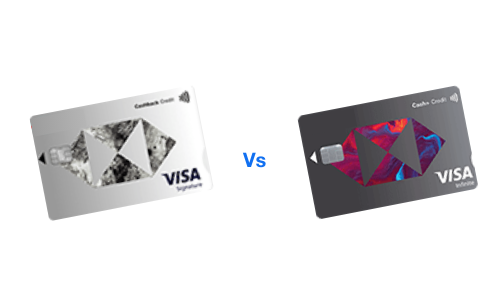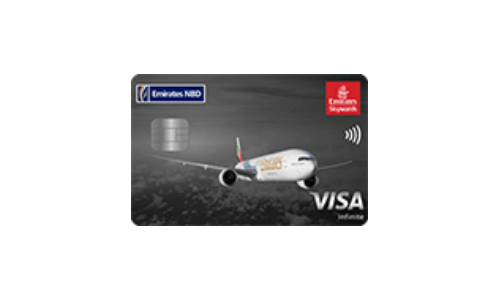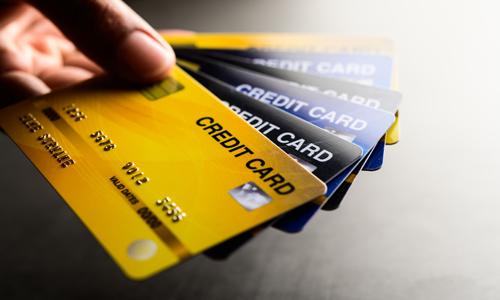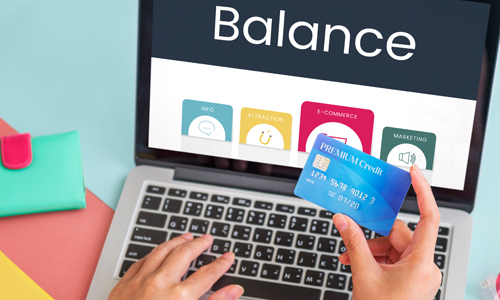Credit Cards - The Favorable and the Unfavorable

Earning rewards, building credit, and staying shielded from fraud, are just a few of the many perks of using the best credit cards. With the convenience of not having to carry physical cash and the ability to keep a clear track of your spending, you may wonder why anyone chooses any medium other than plastic money.
Life is definitely easy and breezy with a credit card in your hand, but it also burdens the cardholder with a load of responsibility. If as a spender, you do not use even the best credit cards wisely and carefully, you will be left with debt, poor credit, and fees. Being aware of the favorable factors and the unfavorable factors of credit cards can be the first step towards benefitting from the plastic money.
Below is a brief table stating the advantages and disadvantages of credit cards, which are then explained in detail.
| Advantages of a Credit Card | Disadvantages of a Credit Card |
| It can help you build credit if you use your credit card carefully | The access to a credit card can lead the cardholder to debt and spending above the income |
| It may help you earn rewards | You need to pay interest on any balance that you carry forward |
| It provides protection against unauthorized charges | Your credit scores can be impacted negatively upon missing a payment or spending too much on your card |
| It helps you get rid of physical cash | You may be confused by the fine print |
| It helps in tracking your spendings easily |
The Favorable Factors of a Credit Card
In order to make the best use of your credit card, it is important to understand the advantages of having one.
Helps in Building Credit
When used in a wise manner, credit cards can help you in building credit. It is generally a requirement to use a credit card for building credit. When you hold a good credit, you are eligible to obtain better interest rates on loans, mortgages, and credit cards, among other things.
Helps to Earn Rewards
You can earn rewards in the form of miles or cashback on all the general spending on your credit card. The best credit cards in the market also offer sign-up bonuses in the form of numerous points if you meet the required minimum spending within the specified period of time.
Protection against Fraud
In most cases, credit card providers have designed safeguards to protect the cardholders and the purchases made by them against any kind of fraud. If you come across any kind of charges that seem odd and you can't recognize, you should get in touch with your credit card company at the earliest. If you ever face a situation where you are unable to locate your card, you should contact your provider and report it stolen or lost as soon as possible.
Debit cards also offer similar protection, however, they are much more limited as compared to credit cards. Credit cards often safeguard a cardholder against any unauthorized charges better than debit cards.
Don’t Have To Carry Cash
It is always much more convenient to use a credit card as compared to carrying cash. You save your wallet from the burden of carrying those bills and the amount of space that they take up. It is always easier to carry just a card when you are going out. If you face an unforeseen event such as your card being lost, you can easily obtain a new one from your provider. However, you cannot replace your stolen or lost cash in the same manner.
Helps to Track Your Expenditure
Any purchases that you make on your credit card are recorded by your card provider. You can easily understand your spending with the ease of having your transaction history, from the name of the merchant, to the date and amount, you can keep track easily without having to note down everywhere you spend.
The Unfavorable Factors of a Credit Card
It isn’t always about the rewards and bonuses when you talk about a credit card. They are very serious financial instruments that can end you in a pile of debt and fee if used unwisely. It is highly important to be well aware of the cons of holding even the best credit cards.
You May Overspend
Even the best credit cards can seem like a pool of infinite funds and if you treat them as such, you will be left with a huge pile of debt on your shoulders. So if you are someone who uses a credit card, you should assign yourself a spending limit, apart from your credit limit, and this limit should not be exceeded. You should keep constant tabs on your purchases and make sure of the fact that you do not spend more than what you can actually afford.
You Can Fall Into Debt
One of the most common ways of falling into debt is overspending on your credit card, and nobody wants to end up in a pile of debt. You should focus on creating a budget and constantly reviewing your spending activities in order to check where you are spending money. When you keep a check on your activities, you can keep a check on how and when you are spending, this information can later help in cutting down any unwanted expenditures.
There are Fees and Interest Involved
When you overspend, it can often lead to a carry forwarded balance – a thing that usually leads the provider charging you interest on the balance. The interest on your balance can go beyond your control. There are also some other fees such as late payment fees, balance transfer fees, among others that are charged by the provider.
It is best to pay your balances in full well before the due date so that you do not face any unwanted interests or fees.
It Can Hamper Your Credit Scores
Improper use of even the best credit cards can have a negative impact on your credit Score. This will, in turn, reduce your chances of getting attractive rates and your chances of approval for any future debts such as personal loans, mortgages, etc.
There are many factors that contribute to your credit score. Some of the common activities that can harm your score are late payment of your bills, not paying your bill, using a large portion of the available credit, among others.
You can take certain actions to avoid any such activities that hamper your score. For instance, you can set up auto payment so that you do not miss a payment.
The Fine Print Can Be Confusing
It can be confusing to read the fine print on your credit card. while most of the important information is summarized in an easy to read the box, there is a summary of the credit card costs and some other information that is in the fine print. However, it is important to be clear about these terms and conditions before signing up for any card.

In a Nutshell
Almost anything in life has an upside and a downside to it, so do the best credit cards. If you use your plastic money wisely, it can prove to be a useful financial instrument. But, if you let your spending get ahead of what you can handle, a credit card can do more harm than good to you.
More From Credit Cards
- Recent Articles
- Popular Articles
















